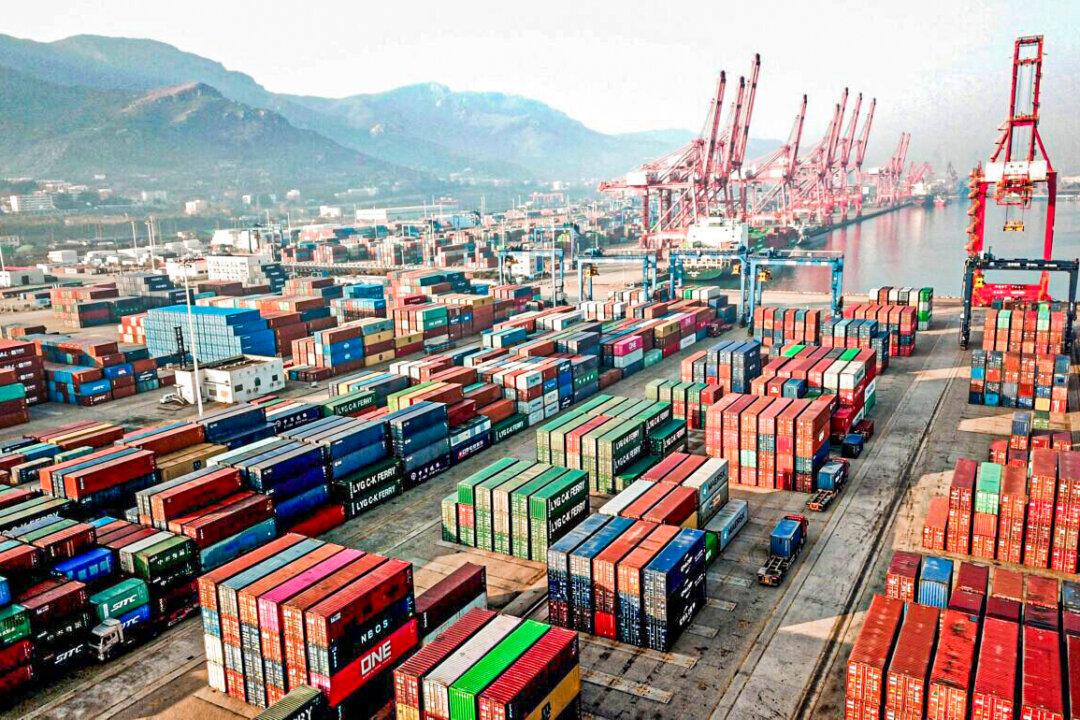The Royal Bank of Canada (RBC) published a report on Monday that claims global supply chain issues are likely to worsen in upcoming months, as complications from China and Eastern Europe result in massive port congestion in key areas.
The report found that a fifth of the global container ship fleet had been stuck in congestion at one of the world’s major ports, which have struggled to keep up with demand since the beginning of the CCP (Chinese Communist Party) virus.





